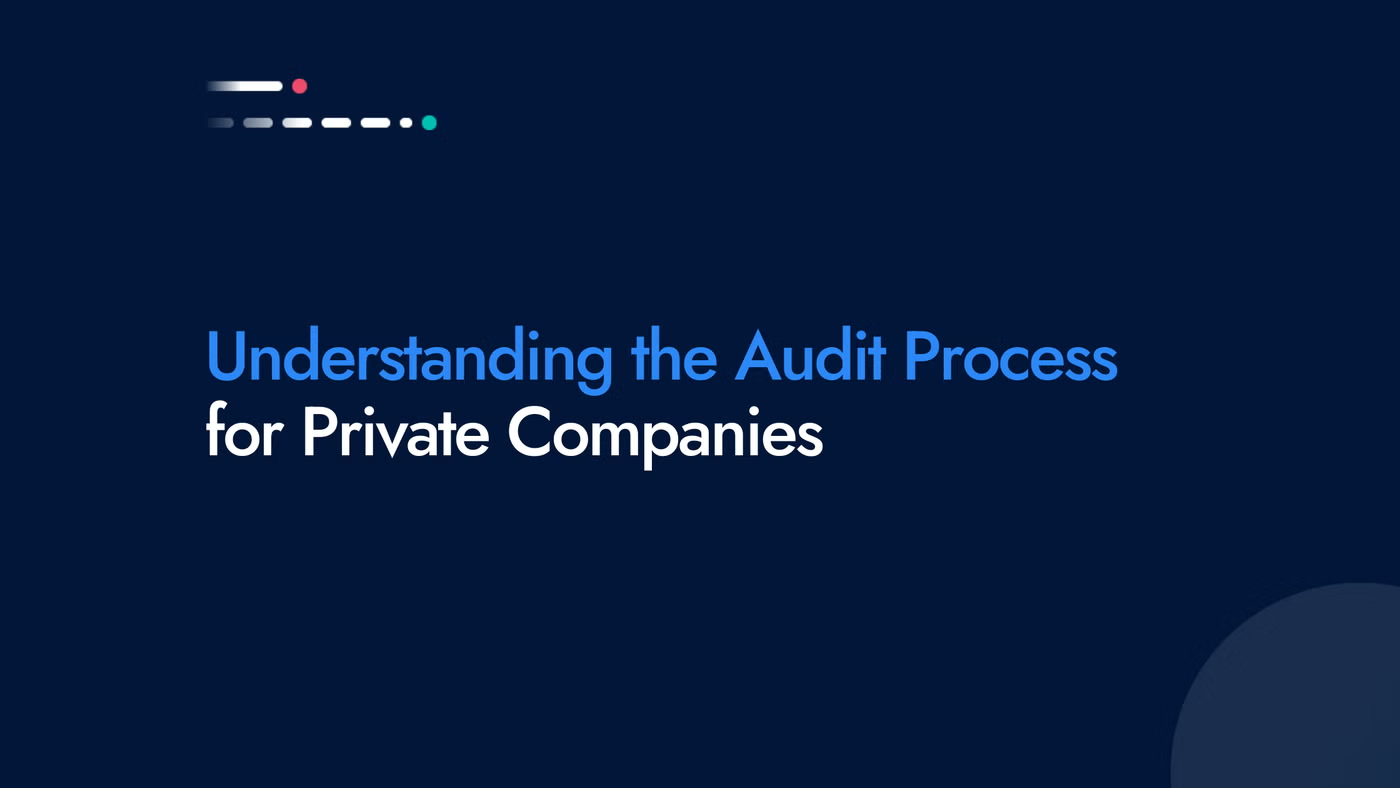- /
- Blog
Understanding the Audit Process for Private Companies

This probably isn't a shock but... Private companies, just like their public counterparts, are subject to audits. These audits are essential for ensuring financial transparency and accountability. But how exactly are private companies audited?
This article aims to dive into the audit process for private companies, exploring the reasons for audits, the steps involved, and the roles of different parties in the process.
Why are Private Companies Audited?
Before we explore the 'how', it's vital to understand the 'why'.
Audits are not just a regulatory requirement; they also provide valuable insights into a company's financial health and operational efficiency. I.e. Audits aren't only for taxes, laws, and external parties; they're also beneficial for those being audited. For private companies, audits can be a tool for identifying areas of improvement and mitigating potential risks.
Moreover, audits can enhance a private company's credibility among stakeholders, including investors, lenders, and customers. They provide an independent verification of the company's financial statements, thereby increasing trust and confidence in the company's management and operations.
Who Performs the Audit?
Audits of private companies are typically performed by external, independent auditors. These auditors are usually certified public accountants (CPAs) who are members of a recognized professional accounting body. This is vital as they must adhere to strict ethical and professional standards to ensure the integrity and objectivity of the audit process - essentially, no funny business!
The decision of an auditor is crucial for a private company. The auditor needs to have the expertise and experience to understand the company's industry and business operations. They should also be able to communicate effectively with the company's management and board of directors to give them practical advice they can employ to ensure they aren't hit with fines or worse.
How is the Audit Process Conducted?
Planning the Audit
It all begins with planning. Auditors review the company's financial statements (and other relevant documents) to gain a detailed understanding of the company's business operations and financial reporting system. They also assess the risk of material misstatement in the financial statements due to fraud or error.
Based on this risk assessment, the auditors then develop an audit plan. This audit plan outlines the audit procedures, the areas of the financial statements to be focused on, and a schedule.
Performing the Audit
Once the audit plan is in place, auditors start executing. These procedures may include inspection of documents, observation of processes, confirmation with third parties, and analytical procedures. Auditors will gather evidence in order to evaluate the accuracy and completeness of the financial statements.
The auditors also assess the company's internal control system. They check whether the company has adequate controls in place to prevent and detect fraud and error. And if weaknesses are identified in the internal control system, auditors will most likely need to perform additional audit procedures.
Reporting the Audit Findings
After completing the audit work, the auditors prepare an audit report. The audit report is used to show the auditors' opinion on whether the financial statements present a true and fair view of the company's financial position and performance - it's a hugely important moment for all companies. If there are any material misstatements in the financial statements, the auditors must disclose these in their reports.
The audit report is then presented to the company's management and, depending on the company’s disclosure policy, may also be shared with other stakeholders, such as investors and lenders.
What Happens After the Audit?
After the audit, the company's management should review the audit findings and take appropriate action.
If there are any material misstatements in the financial statements, these must be corrected. And if there are weaknesses in the internal control system, these must be addressed.
The company should also consider the auditors' recommendations for improving its financial reporting and operational efficiency. By doing so, the company can enhance its financial transparency and accountability, thereby increasing its credibility among stakeholders.
Conclusion
Auditing is a complex process that requires expertise, diligence, and objectivity. For private companies, audits are not just a regulatory requirement, but also a tool for improving business operations and financial reporting. By understanding how the audit process works, private companies can better prepare for audits and make the most of the insights they provide.
The Future of Audit is Intelligent Automation
Discover how intelligent automation is shaking up the audit profession and why many consider it the absolute future.

